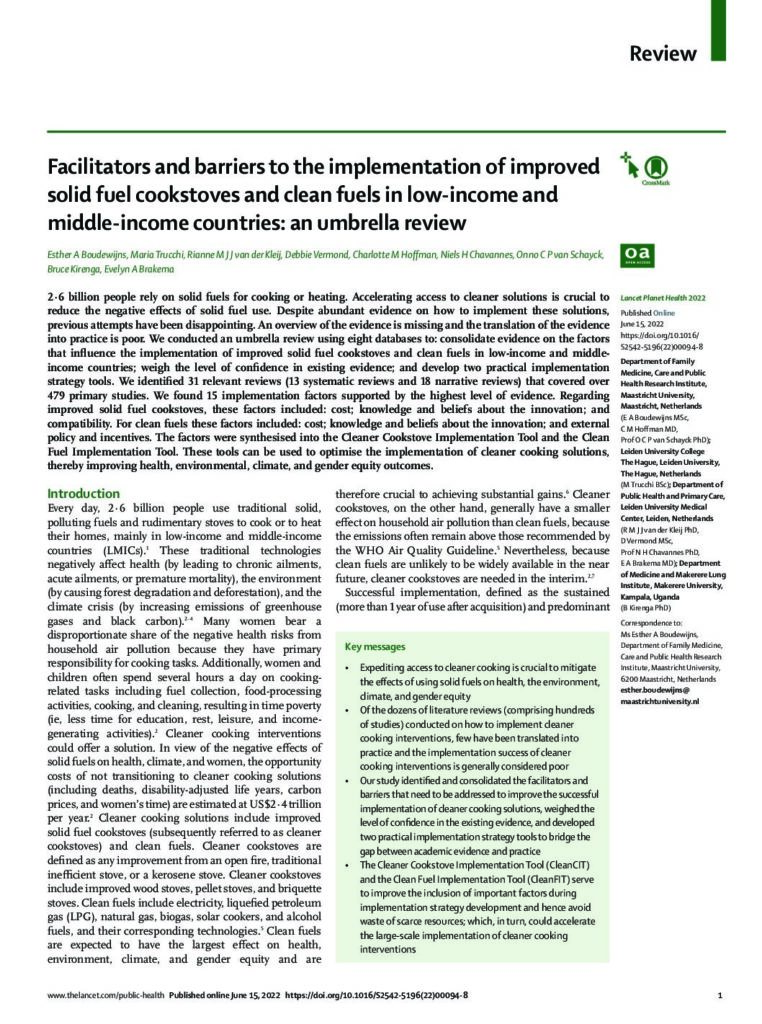Summary
2∙6 billion people rely on solid fuels for cooking or heating. Accelerating access to cleaner solutions is crucial to reduce the negative effects of solid fuel use. Despite abundant evidence on how to implement these solutions, previous attempts have been disappointing. An overview of the evidence is missing and the translation of the evidence into practice is poor. We conducted an umbrella review using eight databases to: consolidate evidence on the factors that influence the implementation of improved solid fuel cookstoves and clean fuels in low-income and middleincome countries; weigh the level of confidence in existing evidence; and develop two practical implementation strategy tools. We identified 31 relevant reviews (13 systematic reviews and 18 narrative reviews) that covered over 479 primary studies. We found 15 implementation factors supported by the highest level of evidence. Regarding improved solid fuel cookstoves, these factors included: cost; knowledge and beliefs about the innovation; and compatibility. For clean fuels these factors included: cost; knowledge and beliefs about the innovation; and external policy and incentives. The factors were synthesised into the Cleaner Cookstove Implementation Tool and the Clean Fuel Implementation Tool. These tools can be used to optimise the implementation of cleaner cooking solutions, thereby improving health, environmental, climate, and gender equity outcomes
Key messages
– Expediting access to cleaner cooking is crucial to mitigate the effects of using solid fuels on health, the environment, climate, and gender equity
– Of the dozens of literature reviews (comprising hundreds of studies) conducted on how to implement cleaner cooking interventions, few have been translated into practice and the implementation success of cleaner cooking interventions is generally considered poor
– Our study identified and consolidated the facilitators and barriers that need to be addressed to improve the successful implementation of cleaner cooking solutions, weighed the level of confidence in the existing evidence, and developed two practical implementation strategy tools to bridge the gap between academic evidence and practice
– The Cleaner Cookstove Implementation Tool (CleanCIT) and the Clean Fuel Implementation Tool (CleanFIT) serve to improve the inclusion of important factors during implementation strategy development and hence avoid waste of scarce resources; which, in turn, could accelerate the large-scale implementation of cleaner cooking interventions





